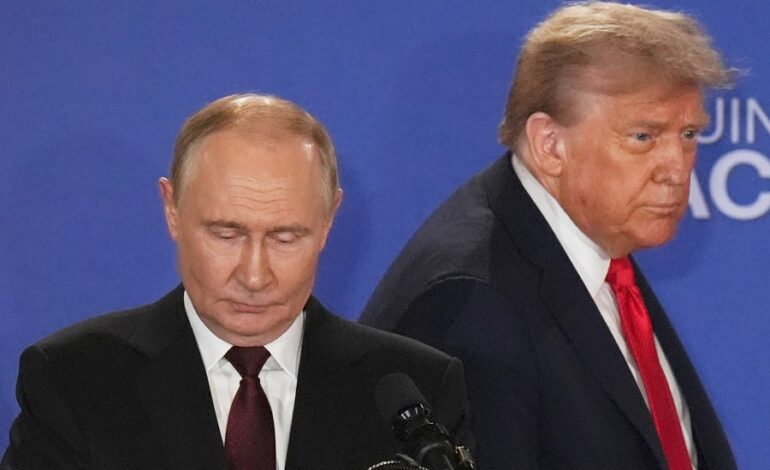Putin Faces Pressure to Alter Ukraine Strategy or Risk Fallout

The ongoing conflict in Ukraine has intensified calls for Russian President Vladimir Putin to reassess his military strategy. As international condemnation of Russia’s actions continues to mount, analysts suggest that a failure to adapt may lead to significant political repercussions for his administration.
In recent months, March 2024 has marked a pivotal moment, as multiple nations have united in their support for Ukraine. This coalition includes key players such as NATO, the European Union, and the United States, all of whom have imposed stringent sanctions on Russia and increased military assistance to Ukraine. These measures have further isolated the Kremlin on the global stage, raising questions about the sustainability of Putin’s current approach.
The implications of continued aggression are profound. A growing number of Russian citizens are expressing dissatisfaction with the ongoing conflict and its impact on the economy. According to recent polls conducted by the Levada Center, approximately 60% of Russians believe that the war has harmed their quality of life. This sentiment could fuel domestic unrest, posing a potential threat to Putin’s grip on power.
International Response Intensifies
As the situation evolves, Western leaders have reiterated their commitment to supporting Ukraine. The United States has announced an additional $500 million in military aid, which includes advanced weaponry and training for Ukrainian forces. This support is aimed at bolstering Ukraine’s defenses against the ongoing Russian offensive.
In tandem, NATO has enhanced its military presence in Eastern Europe, deploying additional troops and equipment to member states bordering Russia. This move is designed to deter further aggression and reassure allies of the alliance’s readiness to respond to any threats. The unity displayed by these nations sends a clear message: the international community is prepared to stand firm against Russian expansionism.
The Kremlin’s reaction to these developments has been one of defiance, with officials asserting that they will not back down in the face of external pressure. However, experts warn that continued isolation could lead to significant internal challenges for Putin. Should public discontent grow, the potential for political upheaval increases, raising the specter of regime change.
Future Implications for Russia
As the conflict drags on, the economic fallout from sanctions continues to weigh heavily on Russia. The International Monetary Fund (IMF) projects that the Russian economy will contract by 3% this year, exacerbated by a declining oil revenue and limited access to international markets. With many businesses struggling, the pressure on Putin to change course is mounting.
Analysts argue that a shift in strategy is not only necessary for international diplomacy but also for maintaining stability within Russia. If Putin fails to adapt, he may face a scenario where his leadership is called into question, potentially leading to significant political consequences.
The situation in Ukraine remains fluid, and the stakes are high for both Putin and the international community. As pressure builds from multiple directions, the coming weeks will be crucial in determining whether the Russian president can navigate the challenges ahead or if he will ultimately be forced to alter his strategy in the face of growing dissent.
In summary, the lessons of history remind leaders like Putin to tread carefully. The balance of power in Russia and its relationship with the world hangs in the balance, with the potential for profound change on the horizon.






